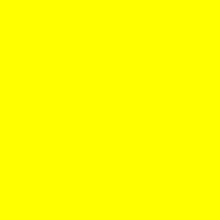Pratique
 From Wikipedia - Reading time: 3 min
From Wikipedia - Reading time: 3 min

Pratique /ˈprætɪk/ is the license given to a ship to enter a port, that indicates to local authorities (on assurance from the captain) that it is free from contagious disease. The clearance granted is commonly referred to as free pratique. A ship can signal a request for pratique by flying a solid yellow square-shaped flag. This yellow flag is the Q flag in the set of international maritime signal flags.[1]
In the event that free pratique is not granted, a vessel will be held in quarantine, according to the customs and health regulations prevailing at the port of entry, typically until a customs or biosecurity officer makes a satisfactory inspection.[2]
Since flying the Q flag involves a request for boarding by Port State Control,[3] it has also become an invitation to Customs to inspect a vessel for dutiable goods or contraband, as in the Rich Harvest case, where a yacht carrying a large quantity of alcohol flew the Q flag in order to seek exemption from having to pay duty during a temporary visit to port.[4] The same vessel was also flying the Q flag when she was boarded in Cape Verde and found to be carrying more than one ton of cocaine. However, although the captain had thereby invited the authorities to make an inspection (being, according to his claim, ignorant of the fact that the boat was carrying contraband), he and the crew were nevertheless arrested for trafficking.[5]
A question over who granted pratique arose with the COVID-19 incident involving the Ruby Princess cruise ship.[6]
See also
[edit]References
[edit]- ^ "Quarantine Flag". crwflags.com. Retrieved 2014-09-03.
- ^ Health (Quarantine Inspection Places) Notice 2014 www.health.govt.nz, accessed 29 October 2020
- ^ "Customs Formalities | Boating Abroad | Information & Advice | RYA". rya.org.uk. Retrieved 2014-09-03.
- ^ "Offshore off-licence man has booze seized". Retrieved 2018-06-22.
- ^ Schinas, Jill. "A Cautionary Tale – and a rallying call to the Cruising Community". Yacht Mollymawk. Retrieved 2018-06-22.
- ^ Hayne, Jordan (August 18, 2020). "Agriculture officers did not conduct coronavirus health checks as required on Ruby Princess". ABC News (Australia). Retrieved September 7, 2020.
 KSF
KSF